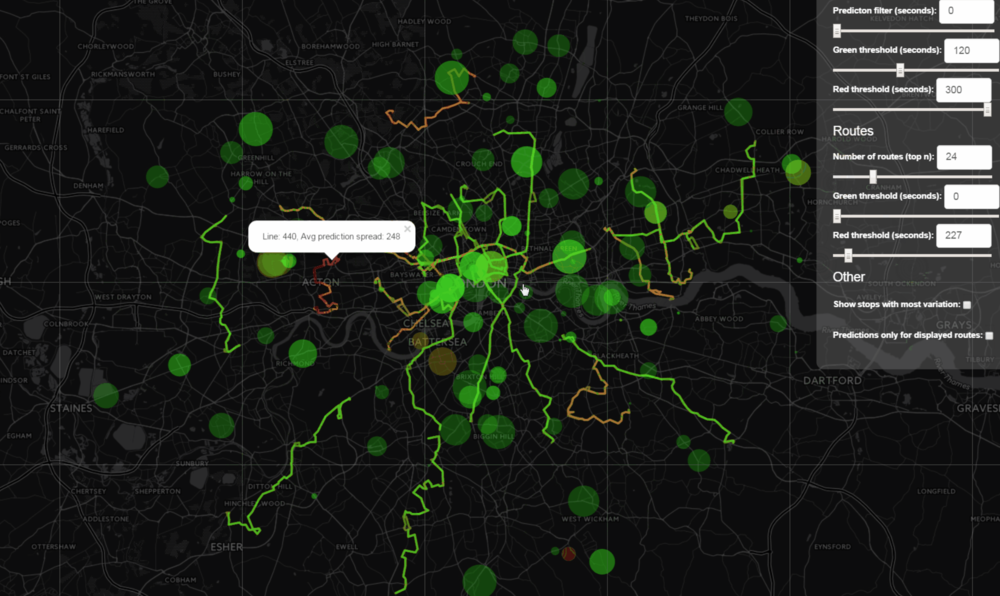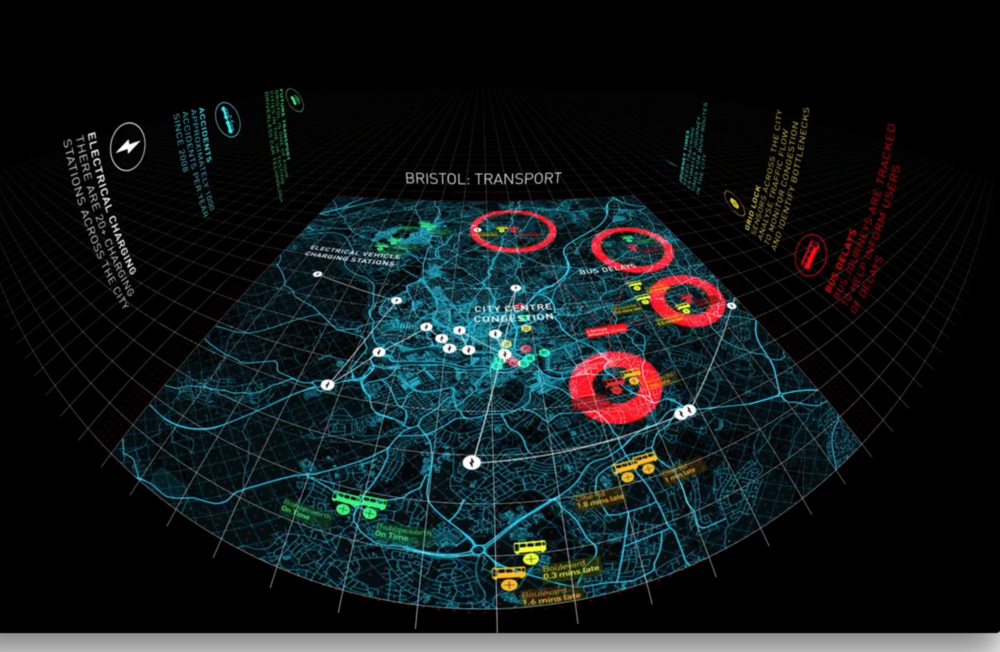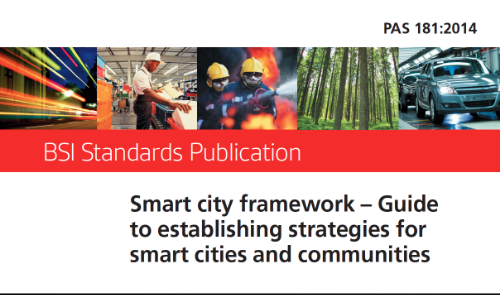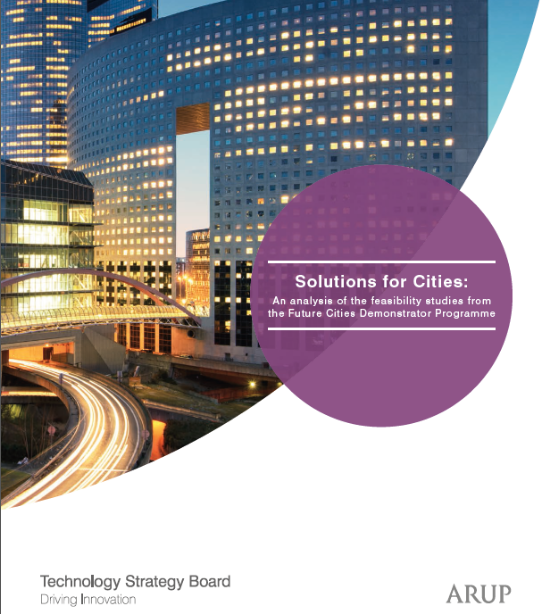Stay ahead of the curve by learning more about these new smart cities standards!
Learn more about the two new smart cities standard developed in collaboration by the Cities Standards Institute.
May 3, 2017

Standards are important, and often not as dry as they sound at first. Especially in a fast evolving market such as smart cities where there are a lot of people and organisations advancing a lot of developments in the name of smart.
The Cities Standards Institute (CSI) - a collaboration between the British Standards Institution (BSI) and the Future Cities Catapult - is the organisation in the UK that is bringing order to the rapidly developing smart cities market. Their mission is to bring together “cities, businesses, academia and innovators to identify the common challenges that cities face, find ways to overcome those issues and introduce standards and common approaches to help guide the evolution of future cities”.
UrbanTide and the smart cities standards
Pippa and Steven of UrbanTide were involved in the drafting and review of these first smart cities standards when working on Glasgow’s £24m smart cities programme:
- BSI PAS (Publicly Available Specification)* 181: Smart city framework – Guide to establishing strategies for smart cities and communities
- BSI PAS 182: Smart city concept model – Guide to establishing a model for data interoperability
PAS 181 distills current good practices into a set of consistent and repeatable patterns that city leaders can emulate, as they develop and deliver their own smart-city strategies. It focuses on the enabling processes by which innovative uses of technology and data can, together with organisational changes, make future cities more efficient, effective and sustainable.
PAS 182 is aimed at breaking down barriers to putting smart-city concepts into practice. It tackles ways in which city authorities can make systems interoperable and facilitate data sharing between agencies. By setting a standard way for organising information, it aims to help businesses create the right datasets and get the most out of the data available to them.
Two new standards on the smart cities block
UrbanTide is a founding member of CSI and has supported the development of two new standards that were launched on 20th May 2017 in an event at the Future Cities Catapult:
***drum roll please***
BSI: PAS 183
BSI: PAS 183 (Smart cities – Guide to establishing a decision-making framework for sharing data and information services): showing how a city-wide, strategic-level approach to the development of a smart city programme should be applied at the level of an individual smart city project.
The data framework for a smart city classifies data assets as either metadata, reference data or thematic data.
“It’s introducing a new governance model for shared data – data we are currently not using and locking down. It deals with the regulations and problems in a thematic way and recognises the underpinning infrastructure”
— Professor Jacqui Taylor, Flying Binary Ltd on BSI: PAS 183
BSI: PAS 184
BSI: PAS 184 (Smart Cities – Guide to developing project proposals for delivering smart city solutions): the data sharing framework it sets out can help ensure that a smart city has the best overall data on which to base sound decisions. Also because data sharing will likely provide the basis for new commercial models in the smart city.
There are interactions and feedback loops between all these good practice components, and the starting point for different projects may vary.
These are both exciting new developments and relate directly to current work within UrbanTide - BSI: PAS 183 in relation to USMART, our smart cities data platform product, and BSI: PAS 184 in relation to our services work - notably smart project proposals that we are currently developing with Neath Port Talbot County Borough Council (NPTCBC) and Basingstoke & Deane Borough Council (BDBC).
Professor Jacqui Taylor (Technical Author, BSI: PAS 183) & Chris Parker (BSI: PAS 184) are to be congratulated on their work in bringing this important smart cities reference material to the market.
The complete range of BSI smart cities standards can be found and downloaded here.
*A Publicly Available Specification (PAS) is a sponsored fast-track standard driven by the needs of organisations and developed according to guidelines set out by BSI. After 2 years, a PAS is reviewed and a decision is made as to whether it should be taken forward to become a formal British Standard. A PAS standardises elements of a product, service or process.
More
Unlocking Ireland's Data Potential: Navigating the Open Data Directive with UrbanTide
News

UrbanTide's Commitment to Security: Officially ISO 27001 Certified!
News

uZero was awarded the edie Net Zero Innovation of the Year: Software, Systems & Services Award
News

Tackling the growing fuel poverty crisis and supporting the Just Transition to net zero
News

Low Carbon Homes’ Home Upgrade Show: Innovations in Retrofit
News

Data Integration and Collaboration are critical for the future of Transportation: Insights from JCT Symposium
News

uMove to support Bedfordshire Council to achieve ambitious sustainability plans
News

Active travel, the current challenges and solutions
News

Using the power of data to build cities of tomorrow
News

uMove supports the Smart Manuals for Streets programme from DfT
News

Scotland's Cycling Framework Makes Infrastructure Greatest Priority
News

Reducing emissions and improving health with active travel
Cycling Scotland

Targeting energy-efficiency campaigns to households most in need
Greater South East Net Zero Hub

Protecting an aging population from fuel poverty
Dartford Borough Council and Dover District Council

Identifying households eligible for energy grant support
The Wise Group

Facilitating active travel behavioural change with data
SEStran

Helping identify customers in or at risk of fuel poverty.
UK Power Networks

Open data promotes transparency, builds trust and empower citizens
Ireland Open Data Training

Identifying and unlocking new revenue from business rates with AI
North Lanarkshire

Tackling the growing
fuel poverty crisis with data and AI
UKRI

Understanding how we live and use our homes with real-time energy data
Smartline

Managing the impact of noise pollution on our cities
Noiseability

Accelerating the transformation of the UK’s energy systems
Energy Systems Catapult

Creating an integrated, affordable low-carbon energy system of the future
ReFLEX Orkney

Investing in sustainable transport infrastructure to become carbon neutral
Somerset County Council

Identifying ageing households at risk of cold and damp home
Sunderland City Council

Innovate UK funding to help our Planet Centred approach to retrofitting Europe’s leakiest homes
News

Open data is now a legal requirement in Ireland and the EU
News

New ‘uZero’ Artificial Intelligence software could help millions with their fuel bills
News
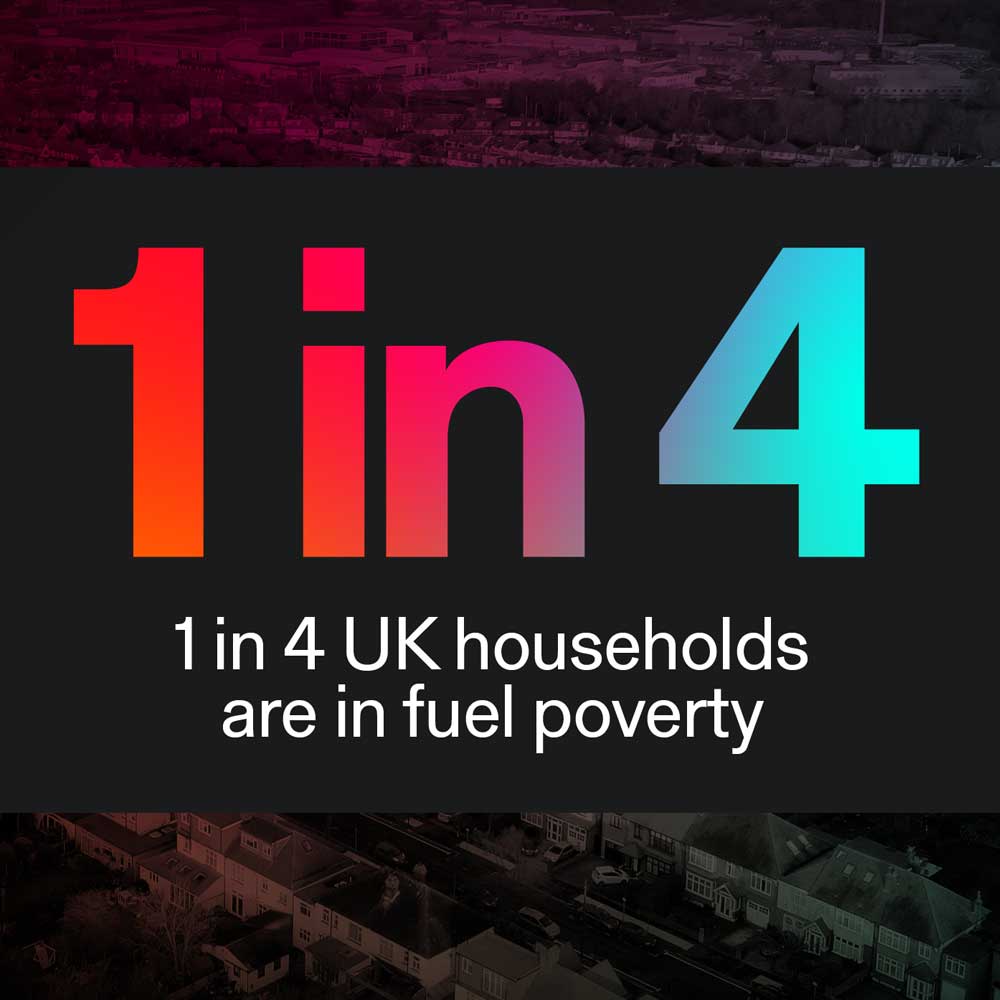
UrbanTide helps secure £48 million funding for Scottish Cities Alliance
News

UrbanTide leads £24 million program to make Glasgow a Future City
News

Building smart communities for OPEN Glasgow Engagement Programme
News

UrbanTide launches IoT data insights platform, uSmart
News

uZero announced as UKRI MEDA competition winner
News

Social Connect is a unique UK Power Networks (UKPN) innovation project
News

UrbanTide announces partnership with Energy Systems Catapult
News

UrbanTide marks four years of Open Data training in Ireland
News

Noisability: UrbanTide wins major bid as part of SynchroniCity program
News

UrbanTide joins prestigious Artificial Intelligence accelerator
News

UrbanTide recognised at ScotlandIS Digital Technology Awards
News

ODI publishes case studies that show how open data can be used in service redesign
News

UrbanTide teams up with North Lanarkshire Council to make better services with data
News

UrbanTide, Snook and North Lanarkshire Council announced as finalists for the 2018 Digital Technology Awards
News

Innovative smart communities IoT project powered by USMART
News

The Power of Data Science in the Health and Care Sector
News

UrbanTide to help transform Ireland by unlocking the power of open data
News

Stay ahead of the curve by learning more about these new smart cities standards
News

#DataFest17 - 12 key lessons we learned about smart cities, communities and the future of data
News
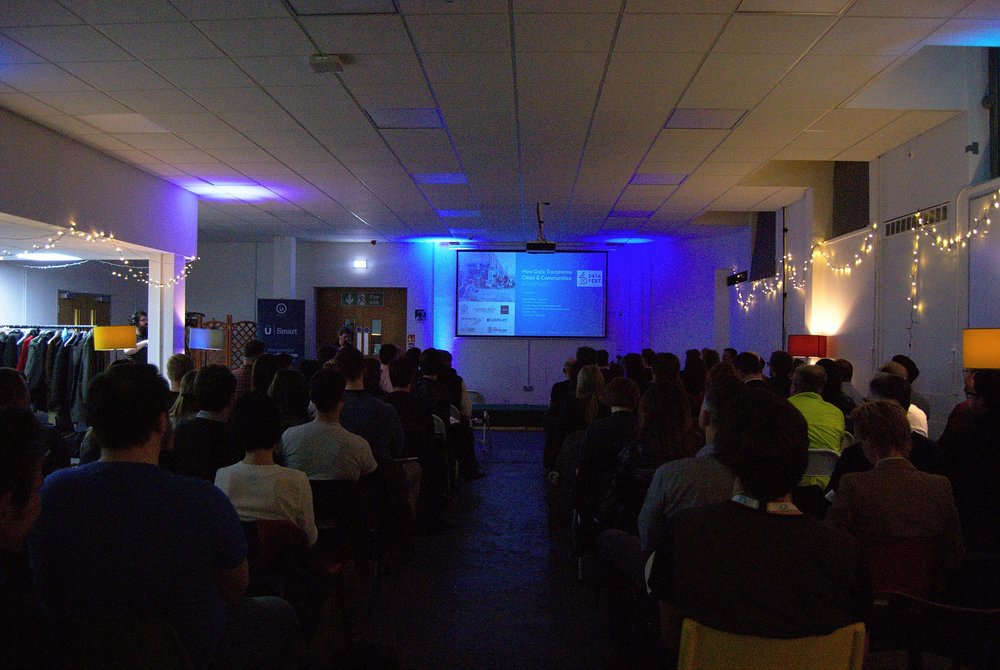
Emerging ideas for a renewed (Y)Our Glasgow City Centre
News

Future Health Hack - building the future of healthcare one line of code at a time
News
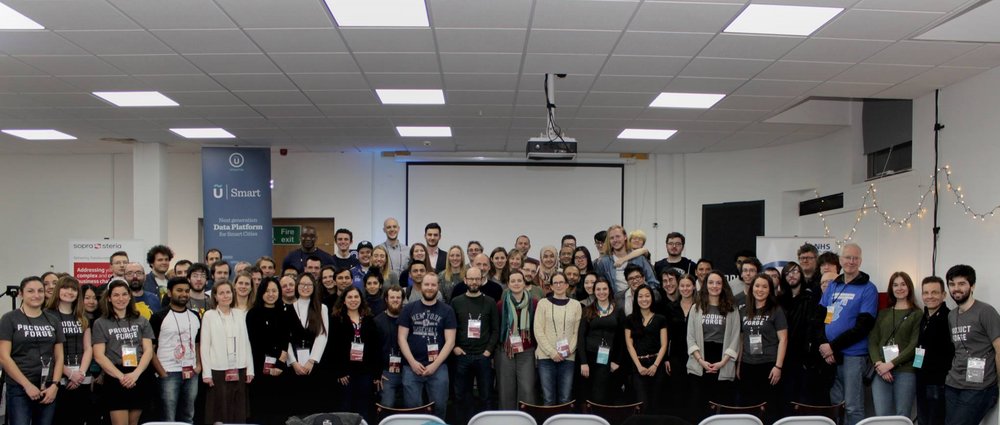
Meet our API Data Explorer – aka your new best friend if you are working with big data
News

Car parks ‘extinct’ in smart cities of the future?
News

3 awesome USMART features - with more coming soon!
News

Data scientists and USMART: a match made in heaven
News

We are now Regional Supporters of Open Data Impact Map
News

Next generation open data platform looking for beta testers!
News

Glasgow city centre regeneration - how smart can Glasgow be?
News

Open data - is the open private sector the next frontier?
News

Open data everywhere! Review of open data maturity in Europe, UK and Scotland
News

Feedback from our year delivering open data training for Scottish Government
News

Announcing our new open data training programme
News

Glasgow City Centre District Regeneration Frameworks
News

Metadata and metadata standards- reflections from our Chief Operational Officer
News

All about our Smart Cities Maturity Self-Assessment Tool
News

Open data training for Scotland's public sector
News

Engage - invest – Exploit (EiE) or Enjoyable - interactive - Experience (EiE)
News

UrbanTide and India: 5 Lesson's Learned from Simon's Trip to the Subcontinent
News

Cisco and the Smart Cities Council: 4 Messages from America...
News

Edinburgh continues to iterate, and then iterate again
News

Start your journey
Take a look at our product page to find out which UrbanTide AI tool has been designed for your needs.
Find out how we can support your data and AI projects and see our growing AI portfolio in action.













